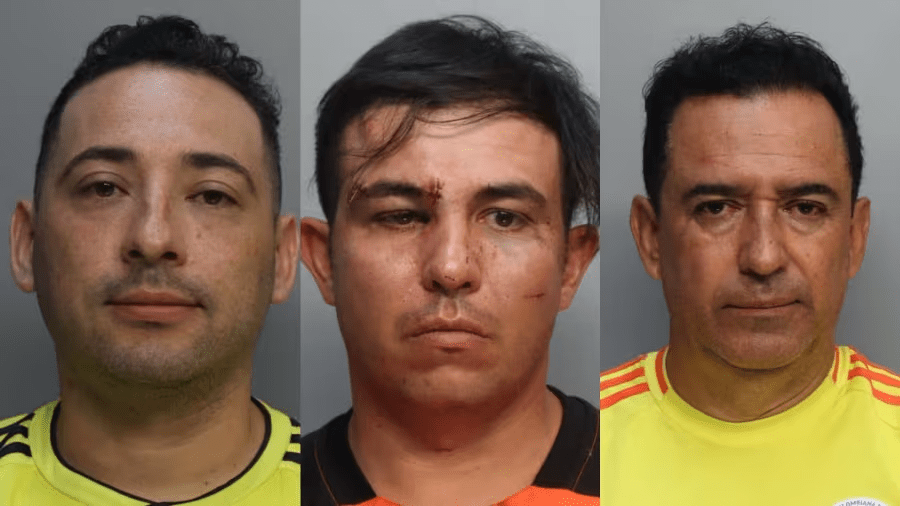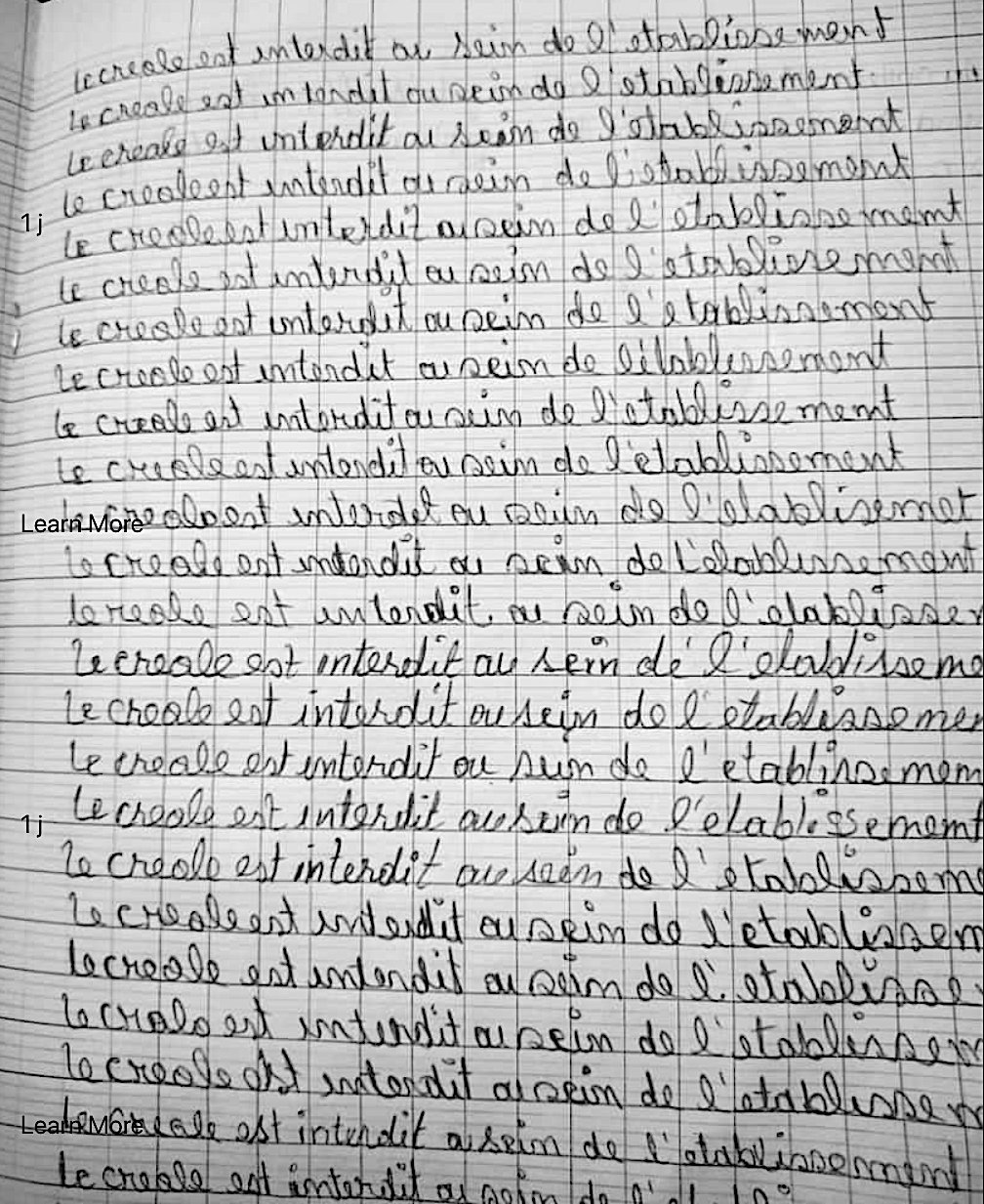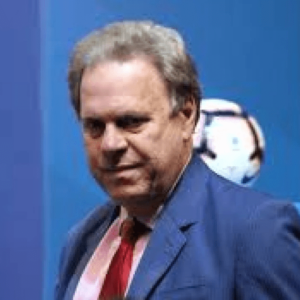The French Ambassador, Fabrice Mauriès, voiced his preference for Haiti’s language policy in a letter to the Minister of Education, a copy of which was obtained by AyiboPost. Sources close to the Ministry condemn this «intrusion»
In a correspondence received by the Ministry of National Education and Vocational Training (MENFP) on October 5, 2023, the French Ambassador, Fabrice Mauriès, recalled “France’s attachment to bilingual education” for Haiti.
This education, the diplomat continues, “must guide the educational and personal development of each student to help them become an enlightened citizen.”
According to Mauriès, this is the “principle that guides and will continue to guide our bilateral cooperation in educational matters.”
This correspondence from the ambassador reflects his opposition to Haiti’s official language policy, according to three sources close to the MENFP.
The Ministry of National Education maintains its desire to move away from bilingualism to highlight “multilingualism,” with Creole as the only language of instruction in the first years of Haitian school.
According to one of the sources, the French diplomat’s letter conveys a «clear and direct threat» to future funding partnerships with French cooperation.
“Some French officials in Haiti [are in] the wrong century and country,” comments one of the sources close to the ministry. The weight of France’s colonial past makes the diplomat’s intervention inappropriate, according to sources close to the MENFP.
This letter from the ambassador reflects his opposition to Haiti’s official language policy, according to three sources close to the MENFP.
“Can we imagine a Haitian ambassador to France sending a letter to the French Ministry of Education to share their preference in terms of language policy?» ponders one of the sources. “This is simply an unacceptable interference in the internal policies of another country,” she says.
The correspondence from Ambassador Mauriès came in response to a message published on Xformerly Twitter, by the ex Minister of Education Nesmy Manigat on September 21, 2023.
Post on X (Twitter) of the former Minister of National Education of Haiti, Nesmy Manigat, September 21, 2023.
In this tweet, the current head of the Prime Minister’s office, Gary Conille, announced the summoning of school officials in Nippes following the punishment of a pupil.
The child was to write dozens of lines: “Creole is prohibited within the establishment.»
“Creole is prohibited within the establishment”: Pensum imposed on a schoolboy in the Nippes department in Haiti. | © Nesmy Manigat sur X
The content of the ambassador’s letter «is common sense,» Renauld Govain, dean of the Faculty of Applied Linguistics, says to AyiboPost. However, the linguist sees the letter «as an oddity» that occurs «all the time in Haiti.»
***
The controversial letter from the French ambassador comes in a context where Haiti is underinvesting in education.
Barely 10% of the national budget is allocated to the MENFP in the current fiscal year. Jamaica and the Dominican Republic, two neighboring countries with higher incomes, spend double that.
For its investment budget as well as strategic projects, the ministry counts on the support of foreign partners.
Since 2021, for example, French cooperation has been supporting the curricular reform of the 3rd cycle of basic and secondary education in Haiti through a project called “Nouvelle éducation citoyenne tournée vers l’avenir.”
As part of the initiative, Haitian experts were to go to France to work with specialists from France on the curriculum of several subjects.
Approached by AyiboPost, two Haitian participants in the project testified to professional work climates, although tensions sometimes arose over content relating to social issues.
Can we imagine a Haitian ambassador to France sending a letter to the French Ministry of Education to share their preferences in terms of language policy?
The interest of French Ambassador Fabrice Mauriès in the language issue and his perception as an “anti-Creole” character is not well-received by most of the participants.
In October 2023, some Haitian experts assigned to develop the Creole language curriculum who were to travel to France as part of this program were refused visas.
Other specialists assigned to mathematics, physics and experimental sciences were able to travel with the same documentation submitted to the French consulate, according to email exchanges reviewed by AyiboPost.
Arrangements made by the institutions involved in the project facilitated the trip.
But most of the Creole experts stopped by the French Embassy see the hand of diplomat Mauriès behind their impasse.
The ambassador was contacted for comment by email on February 19, 2024. This article will be updated if he responds.
“The former colonizer should not have had a say in the language education of Haiti, but the State and the private sector do not invest in the sector,” one of the project managers observes to AyiboPost. Like other executives cited in this article, he requests anonymity to avoid reprisals.
***
Creole – a language spoken by the majority of the country – became an official language 183 years after Haiti’s independence, alongside French.
In practice, French – the public administration’s preferred method of communication – remains much more valued.
A good deal of Haiti’s literary and scientific wealth is written in French, but barely 10% of the country’s inhabitants can speak this language.
To explain this state of affairs, several researchers point to linguistic apartheid used to exclude citizens. This apartheid would account for the under-investment observed in the Creole language over the years.
A 1979 reform provides for the use of Creole as a language of instruction until the 4th year.
But the work necessary to implement this nationally, train teachers and put in place teaching materials in Creole remains insufficient, according to three MENFP executives.
In practice, French – the public administration’s preferred method of communication – remains much more valued.
Apart from teachers in privileged schools generally in large cities, the majority of teachers in the country’s 17,000 establishments do not speak French – a language that they are supposed to teach and in which most of the teaching material is written, considers a ministry official.
40% of children drop out of school before the end of their 9th year, and very few make it to university.
According to specialists, inadequate learning in a foreign language is among the primary causes of academic failure in the country.
“Bilingualism has resulted in a relationship of diglossia, of domination of French over Creole,” says Khadim Sylla, coordinator of the education sector at the office of the United Nations Educational, Scientific, Cultural Organization in Port-au-Prince.
Starting in 2022, UNESCO supported an educational reform introduced by former minister Nesmy Manigat.
This reform must involve the development of a curriculum framework, according to officials from the two institutions.
According to Sylla, “experiences and research” demonstrate that children taught in their mother tongue acquire skills more easily and can learn other languages more quickly. UNESCO, he says, is “a stakeholder in multilingualism.”
***
If France invests little in Creole, other embassies and international institutions contribute to the development of Haiti’s mother tongue.
Since 2018, Spanish cooperation has invested nearly 9 million US dollars in education in Haiti, according to expenditure data communicated to AyiboPost.
Children learn more safely and quickly in the mother tongue, according to Guillermo Garrido Novoa, Minister Counselor at the Spanish Embassy.
“It seems important to us to support its standardization at school both as a taught language and as a language of instruction, especially in the early years,” continues Novoa to AyiboPost.
The United States Agency for International Development (USAID) presents itself to AyiboPost as a pioneer in the teaching of the mother tongue in Haiti.
USAID has financed several projects in this direction over the last decade.
Providing basic education to children in their native language “honors their right to learn in a language they are familiar with,” Jean Lindor, Director of USAID’s Office of Education in Haiti, tells AyiboPost.
***
Upon entering the MENFP in 2022, former Minister of Education Nesmy Manigat stopped funding works in French for the first 4 years of Haitian school.
These books cost the State up to 600 million gourdes per year.
At the same time, the ministry is introducing a single book in Creole for the first two years of basic education.
The initiative partly paid for by the Inter-American Development Bank and the World Bank should be replicated annually until the 6th year.
Printed in one million copies, the book must be distributed to all schools in the country.
Almost 10 versions from different publishers exist. It is not clear how many books were actually printed, how many schools have received them, or how many teachers were trained.
Upon entering the MENFP in 2022, former Minister of Education Nesmy Manigat stopped funding works in French for the first 4 years of Haitian school.
At the same time, these decisions are not unanimous.
Some educators criticize the educational value of single books developed in less than a year.
Minister Nesmy Manigat has a “desire to move in the right direction, but sometimes he does not have the necessary council,” analyzes the dean of the Faculty of Applied Linguistics, Renauld Govain.
The expert criticizes the use of French as a language of instruction from the 5th grade. He considers it necessary to use Creole as the only language of instruction for the entire basic cycle, from the first year to 10th grade.
Then, he said, we would teach in French for certain subjects alongside Creole.
Read also: Three Haitians threatened by foreign soldiers in the bay of Port-au-Prince
The majority of the opponents of former Minister Manigat admit the need to reform Haiti’s language education.
A good reform will contribute, they agree, to increasing the number of French speakers – 300 million worldwide – and to allowing more Haitians to enjoy the cultural wealth of the country and the Francophonie.
Although they allow the MENFP to invest in certain important projects, donations from foreign representations and institutions are subject to the will of donors, as well as their current priorities.
“The current method of financing represents a handicap to the implementation of education in the interest of the country,” a MENFP executive concludes to AyiboPost.
Cover image published by AyiboPost highlighting the French Ambassador to Haiti, Fabrice Mauriès, signatory of a controversial letter received by the former Minister of National Education of Haiti, Nesmy Manigat, on October 5, 2023. | © Original portrait: Marc Henley Augustin/Loop Haiti
Watch this AyiboPost documentary on the diversity and importance of Creole in the Caribbean as well as the fight to save it:
Stay in touch with AyiboPost via:
► Our channel Telegram : Click here
► Our Channel WhatsApp : Click here
► Our Community WhatsApp : Click here









